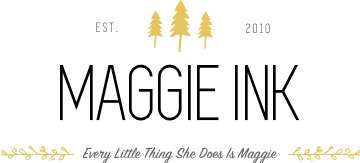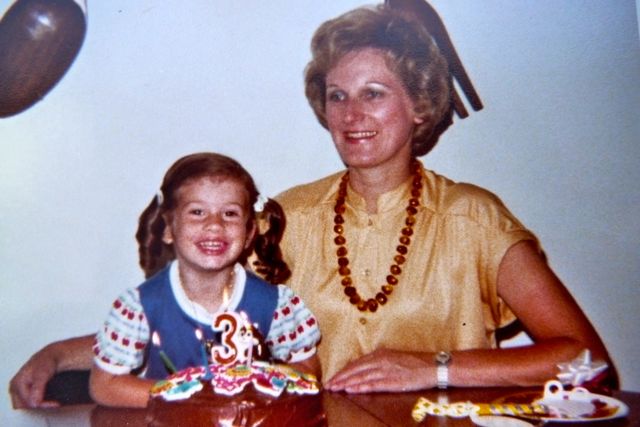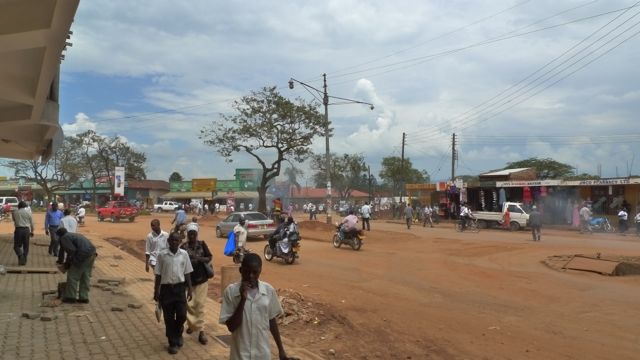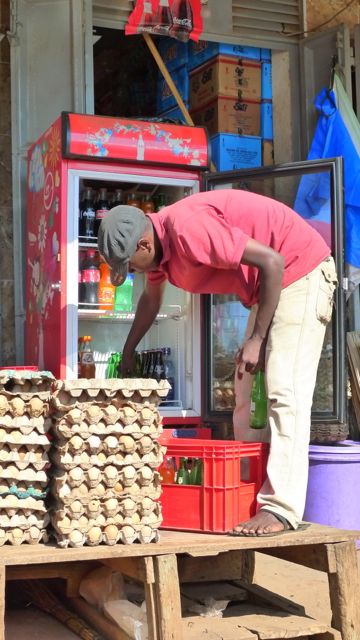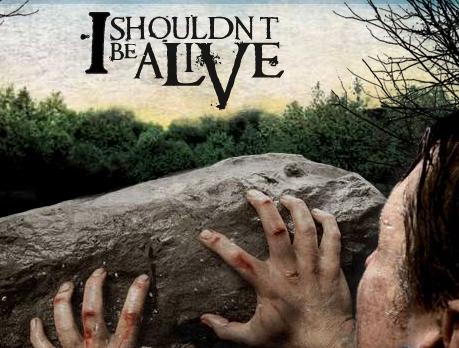On Saturday, my husband and I went to the discount theater to see “Warm Bodies,” a zombie love story. If that sounds like an usual choice for date night, I suppose it is. But right now my body is in limbo, and I feel half-human, half-zombie myself.
I am pregnant. The child I carry inside me, however, is likely dead.
The zombie movie was my idea. I wanted to hunker down and be anonymous. Let the darkness of the theater wash over me. Give my mind a rest for two hours. Then, just as the movie started, a family sat down in the row directly behind us. They brought bags of fast food into the theater. They texted and talked. When the woman’s cell phone rang, she answered the call. And when her baby cried out, she didn’t leave the theater to soothe the infant.
My sadness at my own situation turned to rage and judgment inside that theater. If I had a baby, I wouldn’t bring him or her to a zombie movie. Why is that woman a mother and not me? What makes her more worthy of having a child? Why am I the barren one? Why me? Why me? Why me?
It was only a month ago that I found out I was expecting. I took an at-home pregnancy test on a whim, and I was shocked to see it was positive. I immediately drove to the drugstore and bought another box. I lined up the tests on the bathroom counter and took them, one by one. In response, one by one, I received positive blue lines.

My husband and I have been hoping to conceive for a while, so this was huge news. When he came home from work that night, I greeted him at the door with a kiss. “I made something for you,” I said. He looked over my shoulder to the kitchen counter, expecting a casserole. I shoved the pregnancy tests at him instead. He cried. I cried.
We recently attended an orientation for foster-to-adopt through the county, and now we marveled at how the universe works in strange ways. We were happy. He patted my tummy and kissed it with joy.
Almost immediately I felt pregnant and ripe. My breasts swelled. My pulse felt quicker and almost heavier. I could feel tugging inside, where my uterus was stretching to make room for baby. Each night I looked at my profile in the mirror to see if I was showing yet.
At age 36, I am old enough to receive the official medical diagnosis of “advanced maternal age.” I knew there could be complications with the pregnancy, but I felt pretty confident in my health. I make responsible lifestyle choices, I am active and I eat a ton of kale. Plus, my older sister and I are so much alike. She never had any miscarriages or other issues — not even morning sickness — and she gave birth to two healthy boys.
Still, every week that ticked by felt like an accomplishment. My husband and I began taking photos each week of me posing with a piece of fruit that represented the baby’s size. This was blueberry week. We couldn’t wait for watermelon.
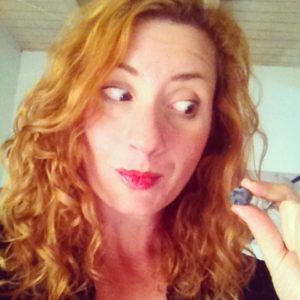
Last Thursday was my first ultrasound. My husband got off work early, and we walked to the obstetrician’s office together. I reclined on a table topped with crinkly paper, and the doctor positioned my husband on my left side, where he could hold my hand and have a perfect view of the screen.
“You’re going to want to see the heartbeat, dad,” the doctor smiled.
This tiny bean appeared on the screen. Black and white. As beautiful as any silent movie star.

After a few minutes of expanding the view of the bean, probing around, expanding the view again, the doctor said, “Oh. Okay.” She sighed.
One long minute later she said, “You know what? I’m not seeing a heartbeat here.”
Those words seem so abrupt when I type them here. But in actuality, this doctor was perfect. She was the precise mix of everything I needed at the very moment I needed it: Straightforward medical talk, sensitivity about the situation, hope for the future. She said she didn’t want to sugarcoat anything, and the outlook was grim. She said the baby should be farther along than it is, but we would do another ultrasound in a few days to be certain. She also ordered blood work, to be completed on two different days, to look for fluctuations in my pregnancy hormones.
I pulled my feet from the stirrups and drew my knees close to my chest. I tugged at my paper gown as far as it would go, even though it never really covers anything.
The thing is, I think I already knew. Even before the ultrasound. Even before the doctor said anything.
Because all those beautiful signals I had that my body was changing? They all stopped about seven weeks into my pregnancy. My breasts didn’t ache anymore. I no longer felt the tugging of my uterus. Even my skin changed. I just didn’t feel it anymore.
Before the ultrasound, I thought I was being paranoid. So I turned to Google, because that’s what I do. I’m good at searching for and finding the answers I want. I found page after page of pregnancy forums and websites, in which dozens of women wrote, “My symptoms went away at week 7, and everything was fine.” Or “I didn’t have any symptoms and everything was fine.” Or “Stop worrying. You’ll cause a miscarriage.”
I meditated, and I prayed. I held one hand over my heart and put the other hand to my stomach, and I whispered out loud, “Hey there, little tomato. Hang in there. Your mama loves you. Please stay with me. Please.”
And even as I pleaded with this embryo, I knew.
The baby stopped growing.
They can’t tell me why. It’s a frustrating truth that modern medicine knows so much about keeping penises erect but so little about what causes miscarriage.
“It is nothing you did,” the doctor stressed. “It is nothing you ate or drank. It is not because you exercised too much or didn’t exercise enough. It is not because of something you wore or a product you used or anything at all. You did not do this.”
But I have to wonder. It’s hard not to wonder. Was it the day I took a walk when it was hot outside? Did I ride my bike down a road that was too bumpy? Was it the wine I drank before I knew I was pregnant? Were my grocery bags too heavy? Was I too anxious? Did I get enough rest? Did I get too much rest?
Even the word “miscarriage” has an accusing tone, as though I was the guilty party here. I mishandled the baby. Oops. My bad.
*****
I have been crying a lot. Whole body ugly cries with extra salty tears, the kind that make your eyes raw and skin sting and chest weary.
I have also been sleeping. Not well. Not for long stretches. But fitfully, unusually. Normally, my husband says I sleep like a corpse. But now it’s like I have been trying to outrun my nightmares, tossing my body all over the bed. When I wake, my fingers are clenched on the fitted sheet, as if I might fall off if I don’t hang on.
But mostly I am so sad. So sad. I’m actually surprised by the ferocity of my grief. I didn’t think something so tiny would have such a debilitating effect.
Rationally, I know this is a little mass of tissue and cells. But in my heart? I grieve for the entire lifetime that has just been taken from me. I had names. I had so many plans. I imagined a future. Birthday parties. Soccer games. A bookshelf that overflows with “Where the Wild Things Are” and “Oh, the Places You’ll Go!” Family vacations to far-off locales. And just like that, all of it is gone.
Except it is not gone. Not yet. This baby still has a place carved out inside of me, even though he or she will never use it. I have three options now, and none of them sound appealing: Wait for my body to realize the pregnancy is no longer viable and let it purge itself naturally; force the embryo out with medicine; have the tissue scraped away.
It is strange that my body still clings to this child. This body wants to keep it. But this body also rejected it. I did everything I could to ensure my child would find a place of comfort and safety within me, and for whatever reason it wasn’t enough.
Now when I am hit with a wave of nausea, I know it is not caused by the life of a blooming baby. It is the tremendous fear that I no longer know my body, that I have become less than human, that as much as I want to create life, I inadvertently destroy it too.
